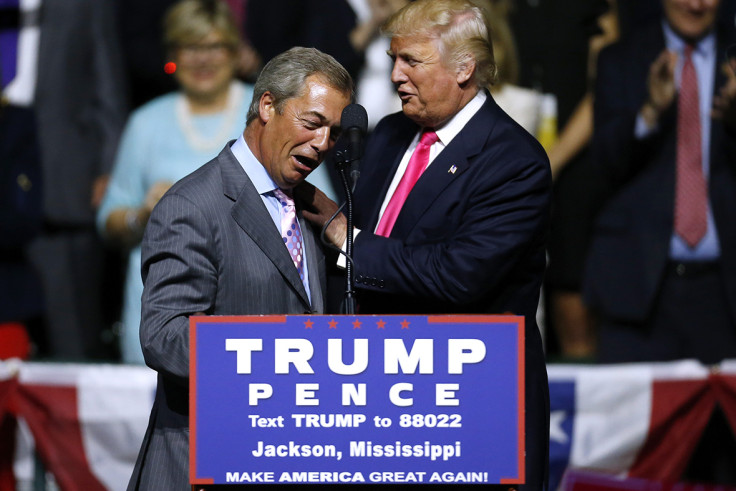'Post-truth' beats 'Brexiteer' and 'alt-right' as word of year
Oxford Dictionaries reckons it will be one of the defining words of our time after spikes around Brexit and US votes.

Oxford Dictionaries has named the compound word "post-truth" as its international word of the year 2016. The word of the year is supposed to capture the "ethos, mood, or preoccupations" of each year.
Last year's word was controversially not exactly a word – it was an emoji. "Face with Tears of Joy" beat out Lumbersexual and Brexit as the word of 2015.
The company said that though "post-truth" as a concept has been around for at least a decade, it had observed a significant spike in its usage – particularly in reference to the UK's referendum on EU membership and the US presidential elections.
The word, an adjective, is defined by the dictionaries as: "Relating to or denoting circumstances in which objective facts are less influential in shaping public opinion than appeals to emotion and personal belief."
Casper Grathwohl, president of Oxford Dictionaries, said that it was not surprising the word reflected a year "dominated by highly-charged political and social discourse". "Fuelled by the rise of social media as a news source and a growing distrust of facts offered up by the establishment, post-truth as a concept has been finding its linguistic footing for some time."
Oxford Dictionaries said that the first recorded usage of the word seemed to be in a 1992 essay by Steve Tesich published in the magazine, The Nation. The company also said that there were suggestion the word had been used before this but that it was used to mean "after the truth was known", rather than being a comment on truth's irrelevance.
Grathwohl said he would not be surprised if "post-truth" became "one of the defining words of our time" and that after spikes around Brexit and Donald Trump's presidential nomination, the usage "hasn't shown any signs of slowing down".
It beat other 2016 zeitgeist words for the top spot, including "alt-right" "Brexiteer", "woke" and "coulrophobia".
2016's word of the year shortlist:
- Adulting: The practice of behaving in a way characteristic of a responsible adult, especially the accomplishment of mundane but necessary tasks
- Alt-right: An ideological grouping associated with extreme conservative or reactionary viewpoints, characterized by a rejection of mainstream politics and by the use of online media to disseminate deliberately controversial content
- Brexiteer: A person who is in favour of the UK withdrawing from the European Union
- Chatbot: A computer programme designed to simulate conversation with human users, especially over the internet
- Coulrophobia: Extreme or irrational fear of clowns
- Glass cliff: Used with reference to a situation in which a woman or member of a minority group ascends to a leadership position in challenging circumstances where the risk of failure is high
- Hygge: A quality of cosiness and comfortable conviviality that engenders a feeling of contentment or well-being, regarded as a defining characteristic of Danish culture
- Latinx: A person of Latin American origin or descent, used as a gender-neutral or non-binary alternative to Latino or Latina
- Woke: Originally in African-American usage meaning alert to injustice in society, especially racism
© Copyright IBTimes 2025. All rights reserved.





















